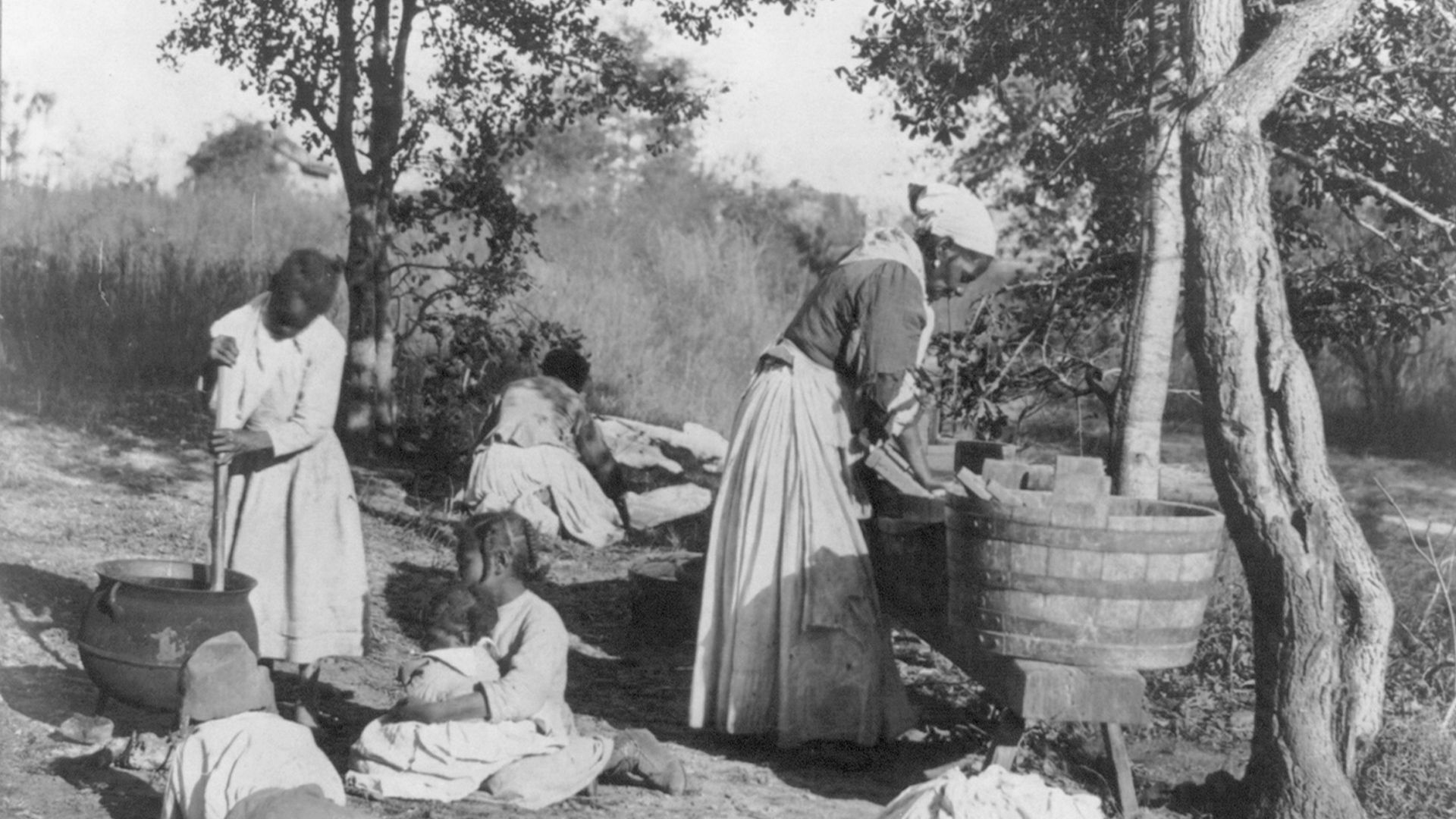The remarkable story of the 1881 Atlanta washerwomen strike

African American women and girls doing laundry with a scrub board and tub, c. 1900. Location unknown. Photo: Courtesy of Library of Congress, LC-USZ62-51058
In the summer of 1881, 20 formerly enslaved Black women and a few men met in a Summerhill church to form a union.
- What was dubbed the "Washing Society" became a political movement and an incredible, if little-known, moment in Atlanta history.
Why it matters: The "Washing Amazons" as they were also known, managed to execute a strike that was "the largest and most impressive among Black Atlantans during the late nineteenth century," writes Tera Hunter, a Princeton University historian who studied the strike and more broadly Black women in the postbellum era in her book "To 'Joy My Freedom."
- "Southern black women's labor stood on the periphery of the burgeoning economy in the new South, but their work was essential to its effective functioning. Few events in history would demonstrate this more profoundly than the washerwomen's strikes," Hunter writes.
The big picture: By 1880, laundry employed more Black women than any other domestic profession. There were more washerwomen than male common laborers, Hunter explains.
- The job gave women more independence than doing in-house cooking or cleaning for another family.
- Plus, demand grew after the 1870s recession. Many white people couldn't afford in-house help and outsourced their washing.
What happened: After trying other tactics to force a wage increase, Hunter writes, by the summer of 1881, these Atlanta women decided to organize and set pay at $1 per dozen pounds of wash. Black ministers spread the word around the city, women went door-to-door recruiting members, and the society elected officers and created subsidiary societies in different city wards.
- Membership grew to 3,000 within weeks, including a small minority of white women.
Soon, as the city was in the throes of preparation for that fall's much-anticipated world's fair, the International Cotton Exposition, the women called for a strike.
- As the city geared up for the high-profile event, whose visitors would indeed require domestic labor like laundry, the strike got white Atlanta's attention.
Zoom in: As documented in the Atlanta Constitution at the time: "The Washerwomen's strike is assuming vast proportions and despite the apparent independence of the white people, is causing quite an inconvenience among our citizens."
- "Those who decline to give this price are still wanting washers. Several families who have declined to pay the price demanded, have determined to send their clothing to Marietta where they have secured laundry service," the reporter wrote.
The intrigue: Some white residents tried to raise money for a commercial steam laundry machine to circumvent the women.
- There's one Constitution report of six "ebony hued damsels" being charged with disorderly conduct and fined for allegedly visiting other women's houses and threatening them to join the strike.
- The Atlanta City Council threatened to levy a $25 annual "license tax" on the washing society.
Yes, but: In an incredible letter to Atlanta Mayor Jim English on Aug. 1, 1881, nearly 500 members countered that they would agree to the $25, but as a "protective fee" to ensure their self-regulation.
- "We can afford to pay these licenses, and will do it before we will be defeated, and then we will have full control of the city's washing at our own prices, as the city has control of our husbands' work at their prices," the women wrote.
- "Don't forget this. We hope to hear from your council Tuesday morning. We mean business this week or no washing."
The bottom line: While the council caved, ultimately, it's unknown how many customers agreed to pay higher laundry fees long-term.
- Still, "The shrewdness of a group of uneducated and formerly enslaved black women submitting this letter must have stunned those who considered themselves better schooled in political economy," Hunter writes.
Go deeper: Read Tera Hunter's book.
- Plus, the Atlanta History Center has information on the strike in its Gatheround exhibit.
More Atlanta stories
Get a free daily digest of the most important news in your backyard with Axios Atlanta.
